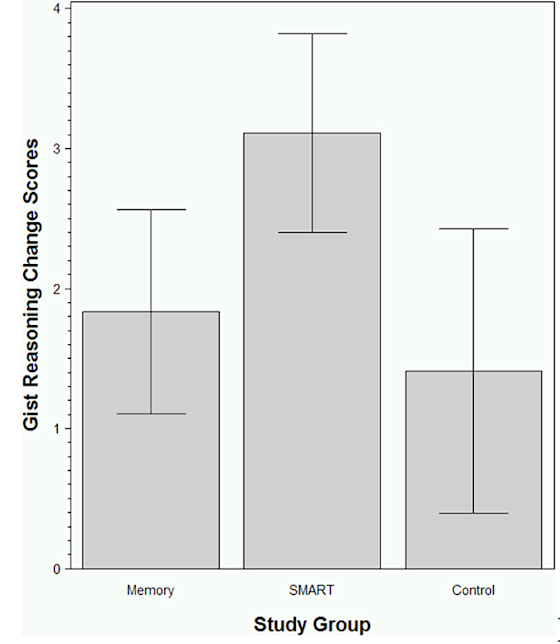Overview
In an effort to support educators and students across the United States, this study investigates the impact of cognitive strategy instruction targeted to enhance abstraction of meaning on adolescent students. Students who engaged in this training significantly improved gist-reasoning and fact-learning abilities measured within this study, whereas students who engaged in alternative training, focused on rote memory strategies, significantly improved fact-learning scores but not gist-reasoning ability. Researchers observed a trend toward significant improvement in overall reading scores for students who practiced abstraction of meaning, as well as a significant correlation between gist-reasoning ability and critical thinking, as measured on a state-mandated standardized reading tests. These findings suggest that teaching higher-order cognitive training strategies facilitate gist-reasoning ability and student learning.
Figure 1. Changes in Gist-reasoning Scores After Training Programs for Each Group. Groups: Memory, Rote Memory Group; SMART, Strategic Memory and Reasoning Training Group; Control, Teen Brain Information Group.






